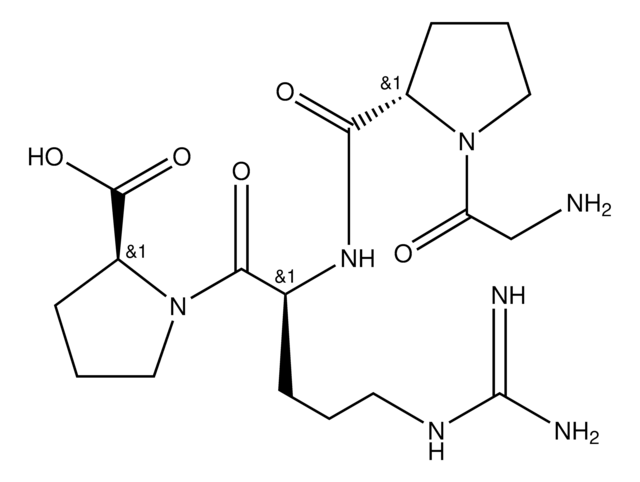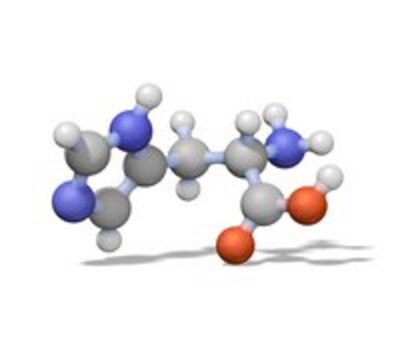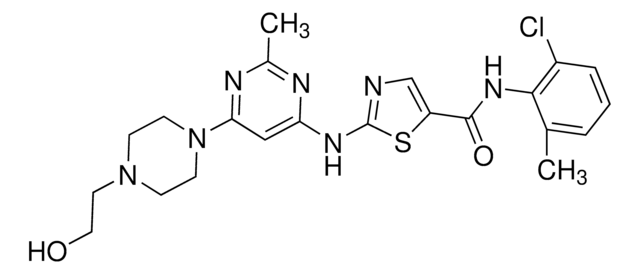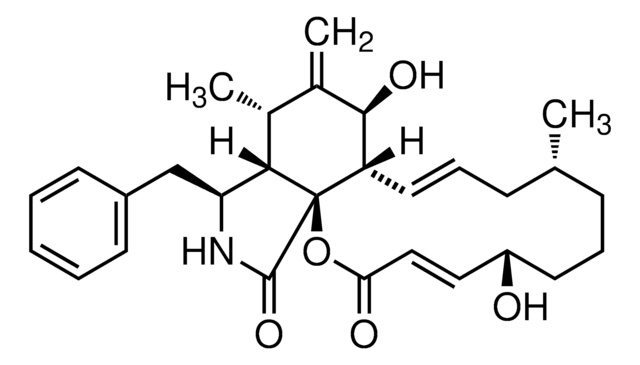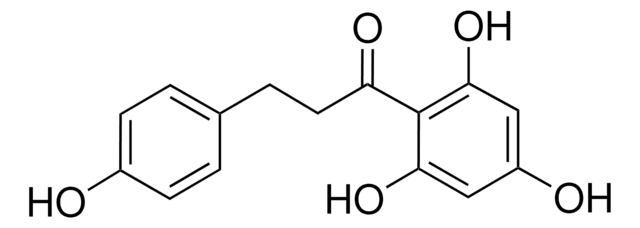G5779
Gly-Pro-Arg-Pro amide
≥97% (HPLC)
Synonym(s):
GPRP amide, Glycine-Proline-Arginine-Proline amide, Glycyl-L-prolyl-L-arginyl-L-prolinamide
About This Item
Recommended Products
Assay
≥97% (HPLC)
storage temp.
−20°C
SMILES string
NCC(=O)N1CCC[C@H]1C(=O)N[C@@H](CCCNC(N)=N)C(=O)N2CCC[C@H]2C(N)=O
InChI
1S/C18H32N8O4/c19-10-14(27)25-8-3-6-13(25)16(29)24-11(4-1-7-23-18(21)22)17(30)26-9-2-5-12(26)15(20)28/h11-13H,1-10,19H2,(H2,20,28)(H,24,29)(H4,21,22,23)/t11-,12-,13-/m0/s1
InChI key
SCCTZYGEMPQRCV-AVGNSLFASA-N
Gene Information
human ... FN1(2335)
mouse ... FN1(14268)
rat ... FN1(25661)
Amino Acid Sequence
General description
Application
- as a constituent of buffer during fluid-phase and bound thrombin inhibition assays, to determine the activity of thrombin
- for blocking fibrin polymerization and preventing fibrin clot formation in presence of α-thrombin, in blood obtained from mice
- during preparation of human soluble fibrin, to block the polymerization of soluble fibrin
Biochem/physiol Actions
Packaging
Storage Class Code
11 - Combustible Solids
WGK
WGK 3
Flash Point(F)
Not applicable
Flash Point(C)
Not applicable
Personal Protective Equipment
Certificates of Analysis (COA)
Search for Certificates of Analysis (COA) by entering the products Lot/Batch Number. Lot and Batch Numbers can be found on a product’s label following the words ‘Lot’ or ‘Batch’.
Already Own This Product?
Find documentation for the products that you have recently purchased in the Document Library.
Our team of scientists has experience in all areas of research including Life Science, Material Science, Chemical Synthesis, Chromatography, Analytical and many others.
Contact Technical Service